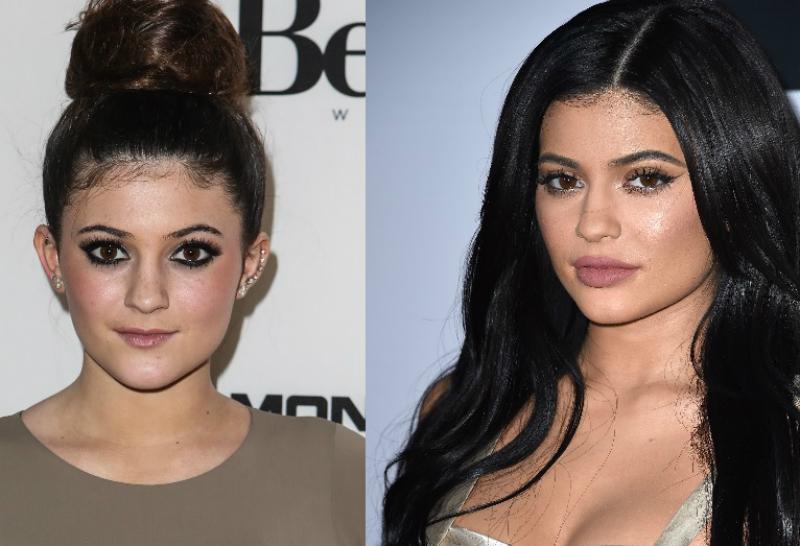A Deep Dive Into the Usual Justifications for Seeking Aesthetic Surgical Treatment: Unboxing the Desire for Modification and Self-Improvement

Social Stress and Charm Requirements
Frequently, societal pressures and dominating elegance requirements play a substantial role in individuals' choices to pursue plastic surgery (liposuction bellevue). In modern society, visual representation greatly affects individual assumptions of attractiveness, often bolstered by media, celebrity recommendations, and social systems. These channels regularly promote idealized versions of elegance, leading people to internalize these requirements and assess their self-worth versus them

In addition, these pressures are not restricted to certain demographics; they influence people throughout different ages, sexes, and backgrounds, highlighting the pervasive nature of charm requirements. This extensive impact increases crucial concerns about the ethics of plastic surgery and the implications of societal criteria on individual choices. Ultimately, understanding these stress is important for promoting a more inclusive interpretation of appeal that celebrates variety.
Personal Experiences and Transformative Stories
Numerous people that undertake plastic surgery report transformative experiences that prolong beyond plain physical adjustments. For lots of, these procedures offer as a driver for boosted self-confidence and a restored feeling of identity. Individuals frequently explain feeling liberated from long-lasting insecurities, bring about enhanced self-confidence in both personal and expert worlds.
Take, for instance, the story of a girl who went through boob job after years of sensation self-conscious regarding her look. Post-surgery, she reported not just a newfound convenience in her body yet also a substantial improvement in her social life and occupation possibilities. Similarly, a middle-aged guy who picked to undertake a facelift shared exactly how the treatment revitalized his overview on life, triggering him to seek new interests and connections.

Mental Variables Behind Cosmetic Surgical Treatment
Many mental variables add to the decision to go through cosmetic surgical procedure, mirroring deeper emotional and mental wellness factors to consider. People frequently go after medical improvements as a way to address feelings of inadequacy, low self-confidence, or frustration with their look. These emotional inspirations can be rooted in previous experiences, social comparisons, or personal ambitions.
Body look at here now photo distortion is a widespread concern, where people perceive their physical characteristics in an exaggeratedly unfavorable light. This distortion can bring about obsessive ideas about perceived defects, motivating the need for surgical modification as a solution. Furthermore, the pursuit of excellence and societal pressures can magnify these sensations, pressing people towards cosmetic procedures in hopes of achieving an idyllic variation of themselves.
Moreover, the concept of self-improvement plays a vital function. Numerous individuals view cosmetic surgery as a path to improve their lifestyle, believing that improved look will lead to increased social acceptance, much better partnerships, or boosted job opportunities. Eventually, the mental variables behind plastic surgery highlight the complex interaction between individual self-perception and outside influences, disclosing the diverse nature of the wish for adjustment.
The Role of Media in Assumption
In today's society, media plays a pivotal duty fit assumptions of appeal and self-worth. With various systems-- social networks, tv, and marketing-- idyllic requirements of beauty are often distributed, influencing private aspirations and self-image. These representations frequently highlight slim meanings of attractiveness, mostly featuring vibrant, slim, and digitally improved photos, which can create impractical benchmarks for people making every effort to adhere.
The effect of media is further worsened by the prevalent nature of social networks, where customers are pounded with curated web content that highlights cosmetic enhancements, recommending a culture of contrast. This constant exposure can bring about feelings of inadequacy amongst viewers, triggering them to take into consideration plastic surgery as a method of attaining the viewed perfect. Research suggests that people that engage with these media representations are most likely to reveal dissatisfaction with their appearance, enhancing the desire for surgical treatments.
Additionally, the normalization of cosmetic surgical procedure in media stories can desensitize audiences, mounting such treatments as commonplace and also essential for social approval. Thus, the media's portrayal of beauty not only influences individual choices concerning cosmetic surgical treatment yet read here also adds to a broader social discussion concerning self-worth and identity.
Ethical Factors To Consider and Future Fads
Amidst the growing appeal of plastic surgery, moral factors to consider bordering the method have become significantly noticeable. As the need for procedures rises, so also do problems pertaining to notified consent, the mental motivations of patients, and the possibility for exploitation by doctors. It is crucial for experts to make certain that people totally recognize the benefits and threats, in addition to the ramifications of their choices, to cultivate a responsible strategy to aesthetic enhancements.
Moreover, the influence of social media sites and appeal standards raises inquiries about the effect on psychological health, specifically among at risk populaces. As understanding of body image concerns expands, moral practice demands a cautious assessment of the inspirations behind surgical treatments. Cosmetic surgeons need to balance person desires with honest obligation, making sure that choices are rooted in genuine self-improvement instead of social stress.
Seeking to the future, trends might move in the direction of non-invasive and technically advanced procedures, highlighting person safety and complete satisfaction. Furthermore, the incorporation of psychological examinations can help resolve underlying concerns before surgical intervention. The plastic surgery field have to adjust to these ethical difficulties while advertising a society of openness and self-acceptance, ultimately prioritizing the wellness of individuals.
Final Thought
In verdict, the search of cosmetic surgical procedure is affected by an assemblage of social stress, individual experiences, and mental variables. The desire for alignment with prevailing beauty standards, paired with the possibility for transformative results, highlights the complex motivations driving people towards these procedures. Furthermore, the role of media fit understandings of elegance can not be downplayed. As honest considerations advance, future patterns in plastic surgery will likely show ongoing company website social discussions surrounding self-improvement and specific identification.
Regularly, societal stress and prevailing elegance requirements play a significant duty in individuals' choices to pursue cosmetic surgical procedure. liposuction bellevue. Inevitably, these transformative stories highlight the diverse reasons individuals seek cosmetic surgery, linking personal growth with the search of aesthetic improvement
Many people view cosmetic surgical treatment as a path to improve their top quality of life, believing that enhanced look will lead to boosted social approval, much better relationships, or improved occupation opportunities. Eventually, the emotional elements behind cosmetic surgical procedure underscore the complicated interaction in between individual self-perception and outside impacts, revealing the diverse nature of the need for change.
As honest considerations develop, future patterns in cosmetic surgical treatment will likely mirror ongoing societal discussions bordering self-improvement and individual identity. liposuction bellevue.